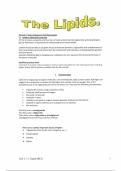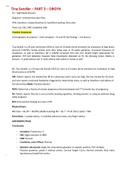Examen
Bayesian Statistics: Concepts & Definitions 100% Verified.
- Cours
- Établissement
Bayesian Statistics: Concepts & Definitions 100% Verified. Transition Kernel - answerdenoted 'P' - the transition kernel (or density) uniquely describes the dynamics of the chain Under what conditions will the distribution over the states of the Markov Chain converge to a stationary distributi...
[Montrer plus]








